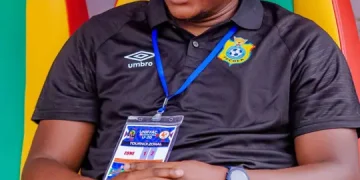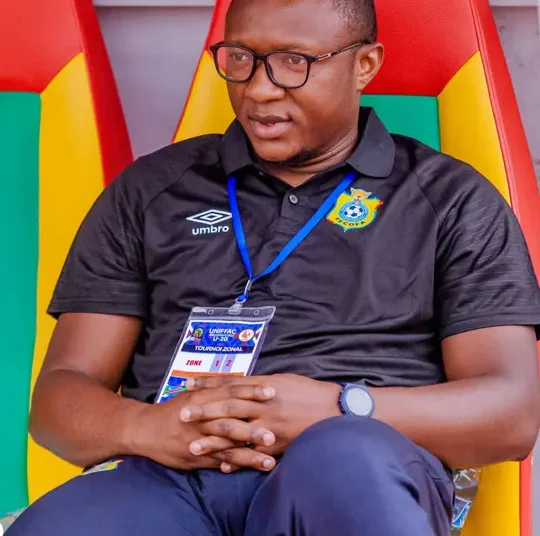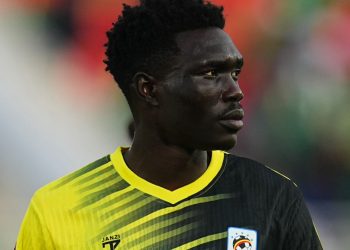Guy Bukasa, the head coach of the DR Congo U-20 national team, is brimming with pride after leading his team to their first U-20 Africa Cup of Nations (AFCON) qualification since 2013.
In an exclusive interview with CAF Online, Bukasa discussed the challenges overcome, the team’s ambitions for the tournament in Côte d’Ivoire, and the resurgence of Congolese football.
Bukasa becomes only the third coach in DR Congo’s history to achieve this feat, following in the footsteps of Jean-Claude D’Amico and Baudouin Lofombo.
“It is a huge source of pride to have achieved this in very difficult conditions,” Bukasa stated. “Every Congolese is happy to finally see our young players compete against their African counterparts.”
The road to qualification wasn’t easy. The team faced a challenging start in the UNIFFAC qualifiers, including a 1-0 defeat to neighboring Congo.
Bukasa explained that the loss wasn’t entirely unexpected, as his players lacked prior international experience at the U-17 level, unlike their opponents.
“Our players were therefore experiencing international competition for the first time,” he said.
However, the team rallied, learned from their mistakes, and ultimately secured their spot in the AFCON.
Bukasa emphasized the measures taken to revitalize Congolese football at the U-20 level.
He highlighted the importance of training camps against experienced teams like Morocco and Tunisia, which, despite losses, proved crucial in building a strong team spirit and fostering patriotism.
He also stressed the successful integration of local and dual-national players, creating a unified squad ready for the challenges ahead.
Looking ahead to the AFCON in Côte d’Ivoire, Bukasa’s ambitions are high.
“Our goal is to not limit ourselves to just the three group matches,” he declared. “We want to qualify for the quarter-finals and, if God allows, aim for a spot in the World Cup.”
Bukasa’s success comes amidst a period of resurgence for Congolese football, with the senior national team and women’s team also achieving significant milestones, along with TP Mazembe’s victory in the CAF Women’s Champions League.
Bukasa attributes this to a collective awareness, improved coaching quality across all levels, and better coordination between different categories.
“Every match is an opportunity for our players to bring joy to our people, especially those going through difficult times,” he added.
He also highlighted the close collaboration with senior national team coach Sébastien Desabre, emphasizing the importance of aligning coaching methods and ensuring a smooth transition for young players moving up the ranks.
“We work closely with Sébastien Desabre since his arrival,” Bukasa explained. “The goal is to ensure continuity because the national team is one entity with different categories.”
Bukasa described his team as a close-knit group, emphasizing the successful blend of local and expatriate players.
He also discussed the challenges of managing young players in the digital age, acknowledging the distractions they face and the need to instill discipline and focus.
“They know that when they join the team, certain things are forbidden, and in return, they have responsibilities to shoulder,” he said.
With the tournament just weeks away, Bukasa outlined his preparations, acknowledging the impact of the security situation on local competitions.
He plans to utilize the FIFA dates in March for friendly matches against strong opponents, followed by a closed training camp to finalize strategies.
The prospect of qualifying for the U-20 World Cup is a significant motivator for the team. Bukasa, however, is careful to manage expectations and avoid undue pressure on his young players.
“Our job is to adjust our message, present things in a way that keeps them focused on each match, each performance, without being overwhelmed by the idea of Chile,” he concluded.





























